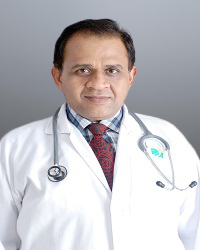Best Doctors for Erectile Dysfunction in Mysore
Erectile dysfunction (ED) is a condition where a man finds it difficult to achieve or maintain an erection sufficient for sexual activity. It is often a result of various factors such as conditions affecting the blood vessels (like heart disease, high blood pressure, or diabetes), neurological disorders, mental health issues, injuries impacting the penile region, certain medications, and unhealthy lifestyle choices like smoking and excessive alcohol consumption. Remember, ED is not an outcome of ageing, rather it is attributed to underlying health issues.
Mysore is home to some of the best erectile dysfunction doctors and specialists who have great expertise in diagnosing and treating this condition. Apollo Hospitals in Mysore hosts some of the best erectile dysfunction treatment doctors in India, equipped with state-of-the-art facilities and the latest treatment protocols.









 Call Now
Call Now


